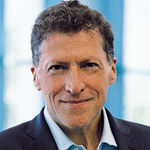
Arnie Weissmann
I just returned from a week in Austin, Texas. I had lived there for 21 years and moved away 21 years ago.
It gave me a sense of dislocation akin (though dissimilar in particulars) to what the James Stewart character felt toward the end of the Christmas tear-jerker "It's a Wonderful Life." In it, he's shown by an angel what would have befallen his beloved hometown, Bedford Falls, if he had never lived there. In the film, it had become Pottersville, named after his heartless adversary, and is as raucous and uncouth as Bedford Falls is quiet and quaint.
I have to confess I might prefer a weekend in Pottersville over Bedford Falls, but I shared a bit of the Stewart character's disorientation when wandering around central Austin last week. Entire streets and neighborhoods had become unrecognizable.
Of course, the changes didn't occur because I was no longer a resident (I think), but it reminded me that, when it comes to most travel destinations, there's really no such thing as "been there, done that." Some people like to return to destinations to revisit the same places they previously enjoyed. But I'll bet every travel advisor has clients who are overdue for a return visit to a cherished destination not to indulge in nostalgia but because past familiarity serves to provide context that deepens appreciation for the destination's evolution to the here and now. That was certainly my experience in Austin.
I had returned to Austin to shop for venues for my daughter's destination wedding (she lives in L.A.). We visited several potential sites -- some purpose-built for weddings, some reimagined into ceremonial halls -- and one thing that struck me was how many people this subcategory of the travel industry employs. In addition to a venue's staff, I saw armies of florists, some taking down displays, others putting them up. I met a dozen salespeople, each an excellent consultative account manager. Servers were setting tables, and DJs were testing turntables and mixers. There were caterers, wedding planners, security guards.
If I still used a checkbook, as father of the bride I'd begin to worry about writer's cramp. But I'm sure Venmo will make everything all too easy.
• • •
My previous column was about oceanographer-environmentalist Sylvia Earle and how she decided to accept the role of godmother to Explora I, the first ship of a new cruise line owned by shipping giant MSC.
My conversation with her often veered into adjacent topics, and there's one thing she said that I've been dwelling upon: "There's no waste in nature," she said. "When something dies, there are hundreds of other organisms that say, 'Yum! Delicious!' Humans have invented the concept of waste."
International momentum is building to limit our ability to produce (and pollute with) indigestible matter. I recently moderated a panel for the World Travel and Tourism Council (WTTC) on coming regulations connected with what is broadly called "environmental, social and governance," or ESG. These new mandatory regulations will be deployed regionally; both the EU and the U.S. are developing requirements designed to curb not only our own negative impact on the environment but to vet our supply chains, as well.
Major travel companies on my panel -- Marriott International, Expedia, Amadeus -- have been preparing for years for these coming requirements and have begun instituting the operational changes that are expected to be required. The WTTC is working with the research firm Oliver Wyman to advise travel companies large and small to be in compliance with these regulations.
The rules are likely to be similar to the Internet privacy regulations in the sense that the most stringent requirements will probably become the de facto rules that everyone will abide by. If your business hasn't yet begun to look into them yet, click this link to watch a video of the WTTC panel discussion.
• • •
Related to the subject of travel companies doing a better job on ESG:
I checked into a hotel this week. The parent company of this particular brand -- and I'm not naming it because it's hardly alone in this regard -- has the following statements in its 2023 "sustainability report":
"[We are] aiming to set a near-term, science-based emissions reduction target and long-term, science-based target to reach net zero emissions by no later than 2050.
"As part of its goals, the company aims to reduce carbon emissions per square meter of conditioned space by 30% from a 2016 baseline by year-end 2025."

Photo Credit: Arnie Weissmann
2025 is coming up fast, so I have a suggestion that requires no investment. In fact, it will save money: Stop setting the room thermostat at 65 degrees prior to a guest's arrival. I can't tell you how many times I've walked into a hotel room and felt the need to put on a sweater. No guest will complain if you set it at 72.